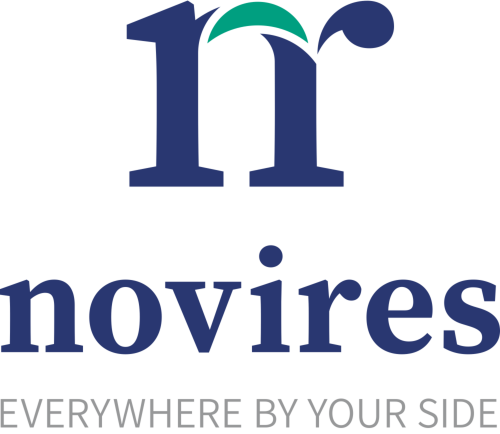Excellence in insurance appraisals: tools, challenges and solutions for a changing industry

The field of insurance appraisals has become essential to the insurance world, where accuracy, transparency, and innovation are key to ensuring accurate loss assessment and, consequently, customer satisfaction. As technologies have evolved and risks have become increasingly sophisticated, the role of the insurance adjuster has undergone profound transformations. In this article, we will explore the main challenges and trends shaping insurance appraisals, highlighting practices, technologies and skills that are essential to achieve reliable and timely assessments, even in complex scenarios.
The Importance of Accuracy and Documentation in Insurance Appraisals
One of the central elements in the field of insurance appraisals is accuracy. This value is crucial not only for determining the right compensation but also for ensuring transparency and trust between insurer and client. Accurate and complete documentation is the foundation of every appraisal, serving as evidence and guidance throughout the appraisal process.
Advanced Documentation Techniques
In recent years, the adoption of technological tools for documentation has grown significantly. High-quality photographs, video footage, 3-D scanners, and drones are tools that enable adjusters to gather detailed information, creating an accurate map of damage. These tools, in combination with advanced document management software, help organize, store, and access information efficiently, ensuring that nothing is overlooked and making it easier to control the information collected.
The Influence of Technology in the Insurance Appraisal Industry
Technology is profoundly reshaping the insurance industry, bringing significant benefits to the field of appraisals as well. The introduction of artificial intelligence, blockchain, Internet of Things (IoT) and augmented reality has enabled appraisers to speed up appraisals, improve data quality and minimize errors.
Blockchain and Smart Contracts
Blockchain, in particular, has proven to be a key tool for ensuring data security and integrity. It enables transparent and secure documentation of all stages of an appraisal, eliminating the possibility of data manipulation. So-called “smart contracts” make it possible to automate certain steps in the appraisal process, triggering compensation or clearances based on predefined criteria, a feature that can greatly reduce response times.
Artificial Intelligence in Data Management
Artificial intelligence (AI) is used today to analyze vast amounts of data and identify patterns that can help appraisers make more informed decisions. For example, machine learning algorithms can support the appraiser in identifying anomalies or estimating repair costs based on historical data, speeding up the appraisal process without compromising accuracy.
The Challenge of Rapidity: Immediate Responses and Fast Redress
In an increasingly demanding environment, clients expect quick responses and prompt compensation. This is especially important in emergency situations, such as natural disasters, where speed in assessing damages can make a big difference for those affected.
Digital Systems and Automation
Digital tools and automated processes are key to reducing wait times and optimizing resources. For example, predictive analytics software can help quickly estimate damage costs based on similar data, while appraisal management platforms simplify the collection, analysis and sharing of information. Automation also reduces review time, making the process more efficient and aligned with client expectations.
Regulations and Compliance: Quality Assurance and Transparency
Compliance with current regulations and guidelines is essential to ensure the transparency and quality of insurance appraisals. In a regulated environment such as insurance, it is essential that adjusters operate in compliance with local and international regulations to protect both the client and the insurer.
Compliance Best Practices.
Insurance regulations and guidelines require adjusters to be up-to-date and thoroughly familiar with legal requirements and ethical standards. Adopting internal procedures to monitor compliance and conducting periodic audits help maintain a high level of compliance. In addition, transparent documentation and the use of digital platforms that track every step of the process ensure full traceability and security.
Best Practices for Insurance Adjusters: Continuing Education and the Importance of Soft Skills
The insurance industry is constantly evolving and requires adjusters to maintain a high level of continuing education. In addition to technical knowledge, adjusters must possess soft skills such as the ability to communicate effectively, empathy, and the ability to resolve conflicts.
The Importance of Continuing Education
Continuing education allows adjusters to develop skills that go beyond simple loss assessment, supporting them in managing complex relationships and responding to client needs. Participation in refresher courses, workshops, and specific certifications enables adjusters to stay abreast of emerging technologies and to fully understand the dynamics of the insurance industry.
FAQ on Insurance Appraisal Management
- What are the most cutting-edge tools used in insurance appraisals? Key innovative tools include document management software, drones for aerial surveys, 3D scanners, and blockchain for data tracking and security.
- How can advanced technologies reduce compensation time? Technologies such as artificial intelligence and blockchain accelerate damage analysis and assessment processes, enabling faster and more accurate claims.
- Why is continuing education important for insurance adjusters? Continuing education ensures that appraisers are up-to-date on regulations and new technologies, providing more accurate and reliable appraisals.
- What is the role of compliance in insurance appraisals? Compliance is essential to ensure that any expertise is performed in accordance with current regulations, ensuring transparency and professionalism.
Conclusions
The insurance appraisal industry is undergoing a profound transformation, where accuracy, transparency and the adoption of advanced technologies are key to meeting new challenges. From accurate documentation to ongoing training of adjusters, the practices adopted in the industry aim to ensure service excellence, meeting the needs of an increasingly sophisticated market. The evolution of the role of the insurance adjuster is an integral part of this transformation and requires skills that go beyond the technical, including empathy and customer management skills. In such a dynamic environment, those who work in the field can help to continuously improve the quality and efficiency of appraisals, ensuring quick, reliable responses that are in line with client expectations.
Novires is a solid and experienced entity in insurance appraisals, thanks to the adoption of advanced technologies and a team of highly qualified appraisers. With our experience and cutting-edge approach, we ensure accuracy, transparency and speed for excellence in insurance appraisal services. To learn more about how Novires can support your insurance appraisal needs, contact us today and discover the benefits of relying on a partner of excellence.
